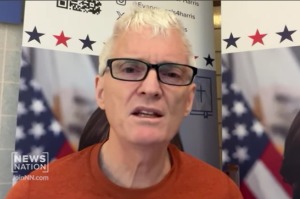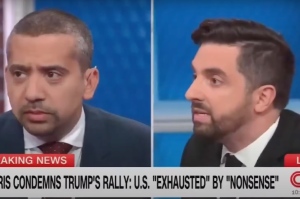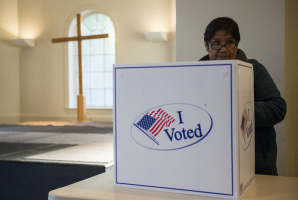White Christian America Is Dead and Trump's Loss Will Prove It, Religion Expert Robert P Jones Says
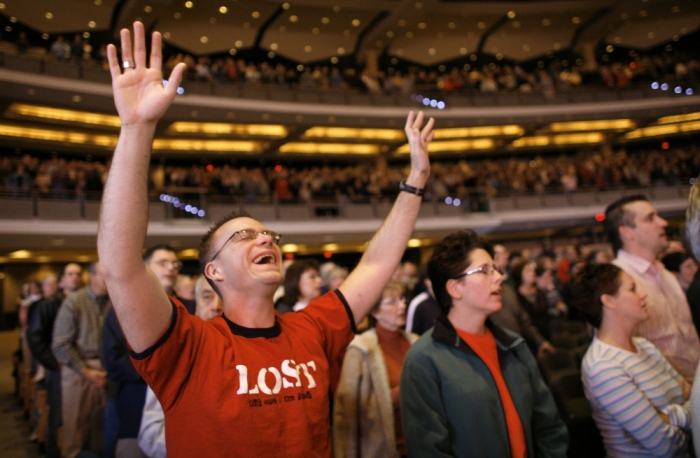
In his new book "The End of White Christian America," billed "quite possibly the most illuminating text for this election year," Robert P. Jones, founding CEO of the Public Religion Research Institute, says white Christian America is dead and the general election in November could be a referendum on it.
"I begin the book with an obituary for White Christian America, and I conclude the book with a eulogy. This construction is consistent with the book's stark title. My argument in the book is that we have already experienced the passing of White Christian America," Jones told The Washington Post in an interview with John Sides, an associate professor of political science at George Washington University who specializes in public opinion, voting, and American elections.
"While this claim is grounded in demographic changes, it is also supported by the fading power of major institutions, such as the National Council of Churches or the Christian Coalition of America. There are no indicators that the country will see the likes of White Christian America as a dominant cultural force again," he said.
Using a graph created from 2014 data, Jones highlighted the rapid decline in the proportion of white, non-Hispanic Christians across generations.
"Today, young adults ages 18 to 29 are less than half as likely to be white Christians as seniors age 65 and older. Nearly 7 in 10 American seniors (67 percent) are white Christians, compared to fewer than 3 in 10 (29 percent) young adults," Jones noted.
And while this generational shift in the proportion of white Christians is due in part to changing demographics, Jones explained that it is also due to young adults rejecting organized religion.
"Young adults are three times as likely as seniors to claim no religious affiliation (34 percent versus 11 percent, respectively)," he said.
While this group of unaffiliated Americans have rejected organized religion, Jones was quick to explain that all of them have not rejected God.
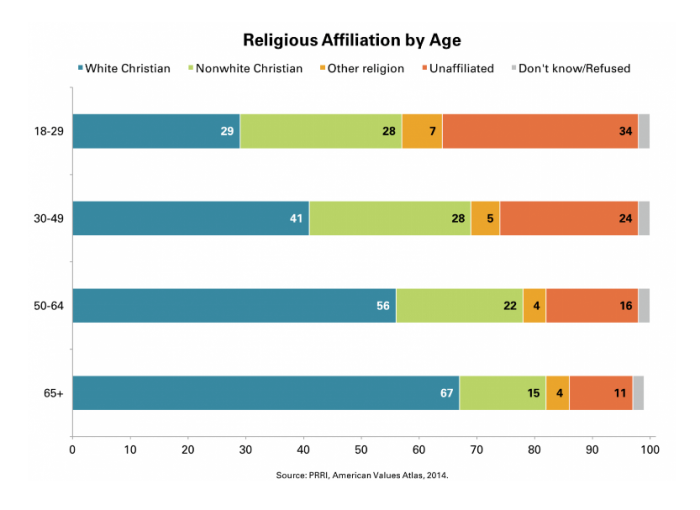
He said white Christians aren't just falling away from mainline denominations, like the Episcopal, Methodist or Presbyterian churches, as some believe, but evangelical churches, too.
"Up until about a decade ago, most of the decline among white Protestants was confined to mainline Protestants, such as Episcopalians, United Methodists, or Presbyterians, who populate the more liberal branch of the white Protestant family tree. The mainline numbers dropped earlier and more sharply — from 24 percent of the population in 1988 to 14 percent in 2012, at which time their numbers generally stabilized," Jones told The Washington Post.
"But over the last decade, we have seen marked decline among white evangelical Protestants, the more conservative part of the white Protestant family. White evangelical Protestants comprised 22 percent of the population in 1988 and still commanded 21 percent of the population in 2008, but their share of the religious market had slipped to 18 percent at the time the book went to press, and our latest 2015 numbers show an additional one-percentage-point slip to 17 percent," he added.
To illustrate his point, Jones highlighted the continuous decline in numbers from the Southern Baptist Convention.
"These indicators of white evangelical decline at the national level are corroborated, for example, by internal membership reports during the same period from the Southern Baptist Convention, the largest evangelical Protestant denomination in the country. It has now posted nine straight years of declining growth rates. As a result, both white mainline Protestants and white evangelical Protestants are graying," Jones said.
The PRRI head also criticizes how white evangelical Protestants have handled social hot button issues such as racism and homosexuality.
"I'm certainly critical of the way that white evangelical Protestants have historically intertwined racial segregation and Christianity. That's a normative perspective, but I don't take it to be a controversial one," he said.
















